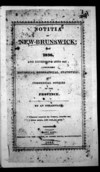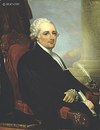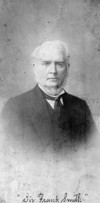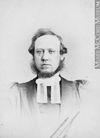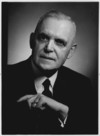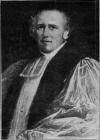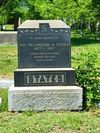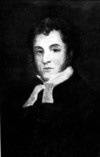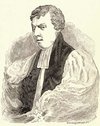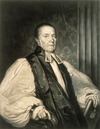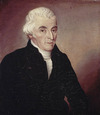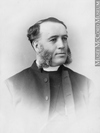in Leeds and Grenville counties and in Kingston.
Smart opposed the monopoly of the Church of England in clergy reserves and its control over the
clergy reserves question as a ministerial device intended to distract public attention from the Rebellion Losses Act, but later he came round to supporting secularization of the reserves. A Presbyterian of
proposals. The chequered plan of distributing reserves in townships, adopted on 15 Oct. 1792 and applied almost uniformly throughout the province, was his. It enlarged the area of the crown and clergy
organized a “Catholic Convention” in Toronto in June 1867, which formally petitioned Macdonald for “political rights and privileges” for Irish Catholics. Few clergy approved of the convention since the lay
judgements of numerous disciplinary committees that heard grievances and disputes among the clergy and laity.
Smith was firmly attached to the strict
. He was also one of the original board members of the Temporalities Fund, which was incorporated in 1858 to manage the money the church received after the secularization of the clergy reserves in 1854
teachers. Before 1888 school inspectorates were small, local units and many of the inspectors were members of the Protestant clergy. Somerset established a centralized system of inspection and codified
Scotland, he had the same rights as the clergy of the Church of England. Attorney General Jonathan Sewell*, who prosecuted Bentom, but whose wife
.
When Spencer took up his post in Newfoundland he found that the small number of clergy and the depressed condition of the people had cast a shadow on the growth of the Church of England. However, with
the clergy reserves. He stood for equality of treatment by the state of all churches, but preferred that they be independent. In 1854, aware of the differences of opinion in the Methodist Church, he
by the war. In Quebec the church was divided on his support for social welfare. Right-wing clergy opposed it, but he was indifferent to their arguments. From time to time, as a senior minister, St
also maintained cordial relations with the non-Anglican ministers in the capital. He unabashedly sold to the clergy of dissenting denominations the marriage licences issued to him by the provincial
, articulate, personable, better-educated than most of the indigenous black Baptist clergy, and (in historian Robin W. Winks’s words) “inordinately handsome,” States could not fail to command attention. In
chronicle, Stevens’s paper contained reports from religious societies, book reviews, ecclesiastical appointments, news of the colonial church, and biographies of important clergy. The experience of editorship
through the diocese. He was sent to England in March 1823 to defend Anglican claims to exclusive benefit from the clergy reserves, lands set aside to support a Protestant clergy. On this occasion Stewart
* criticized the Church of England’s claims to establishment and ownership of the clergy reserves, Stinson warned him of the danger implicit in his complaints and insisted that a majority of the population
the entire province, increased government assistance was a desperate need. To be sure, there were the clergy reserves, but since these could only be leased, not sold, they brought in little revenue in a
considerable visiting of pioneer settlements and the oversight of a few clergy as new missions were opened. In 1799, at his own request and with the support of Bishop White, he was given an honorary
communion are unknown; possibly it took place at this time. In 1858 Fleury returned from a visit to Upper Canada and told of the need for missionary clergy in the new diocese of Huron. Sullivan, John Philip
work. Although he supported the legitimacy of the constitutional privileges of the Church of England, the clergy reserves issue had to be settled in the interests of internal harmony. To this end he




